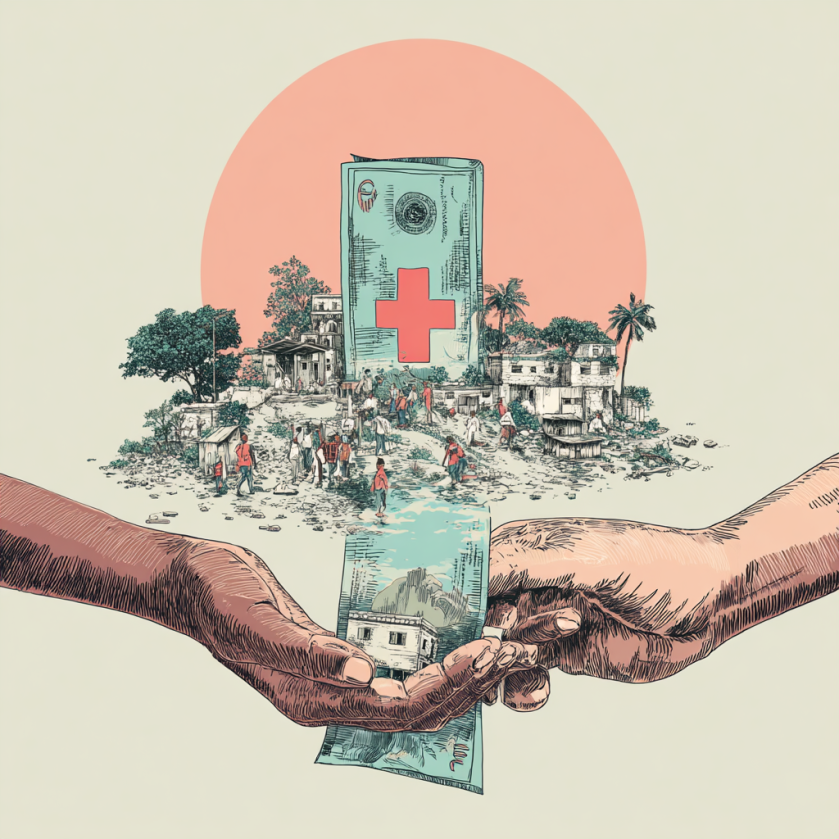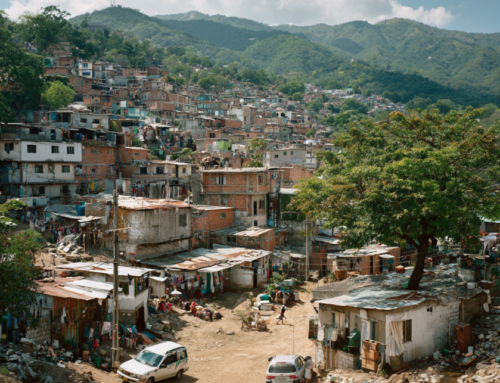A Foreign Report by Michael Savage
Access to healthcare is a fundamental human right, yet in Honduras—one of the poorest nations in Latin America—it remains out of reach for many.
With 63% of the population living in poverty and a health system strained by limited resources, corruption, and geographic disparities, everyday medical needs often go unmet. From rural mountain villages to overcrowded urban hospitals, the country faces deep-rooted challenges in delivering quality, equitable care.
I’ve written previously about the healthcare challenges in Honduras, but the country has made strides in expanding its healthcare infrastructure and launching public health campaigns, it continues to battle disease outbreaks, under-resourced facilities, and a shortage of trained medical personnel.
Recent epidemics like dengue fever, combined with chronic issues such as malnutrition, maternal health gaps, and poor access to preventive services, highlight the urgency for both local reform and international support.
Despite the obstacles, there is hope. Grassroots initiatives, nonprofit organizations, and international partnerships are making a difference in underserved communities—providing critical care, medical training, and supplies.
For those watching from abroad, like myself and my wife Sandra who oversees our Foundation to help fight poverty, there are meaningful ways to get involved. Whether through donations, volunteer efforts, or advocacy, helping Honduras strengthen its healthcare system can create lasting change, one patient at a time.
1. Overview of the Health System
- Honduras operates a mixed public–private healthcare system:
- The Ministry of Health serves the entire population, but only about 50–60% access it regularly.
- The Social Security Institute covers roughly 40% of formal workers and their dependents.
- A private sector, used by about 10–15%, caters to those who can pay or have insurance.
- Around 17–18% of Hondurans lack regular access to any healthcare.
- The country boasts a network of 7 national hospitals, 6 regional hospitals, and over 1,500 primary-care facilities, including rural and maternal-child clinics.
2. Key Challenges
A. Inadequate Infrastructure & Workforce
- Honduras has only 0.8 doctors per 1,000 people, with many facilities suffering from poor maintenance.
- A 2024 UNOPS project noted that Tegucigalpa’s Hospital Escuela required major upgrades—especially in its operating rooms and sterilization units.
B. Disease Outbreaks & Environmental Risks
- Dengue reached epidemic levels in early 2024—with over 20,000 cases and 27 deaths by late May—due to shortages in public health supplies and poor sanitation.
- Endemic diseases like Zika, chikungunya, malaria, tuberculosis, HIV, and leishmaniasis remain public health concerns.
- In San Pedro Sula, air pollution soared to 249 µg/m³, nearly 50× WHO-safe levels (5 µg/m³), leading to respiratory and heart complications during wildfires in May 2024.
C. Sociopolitical & Economic Barriers
- About 50% of health spending comes out-of-pocket, a heavy burden for poorer communities.
- Corruption has weakened public spending: from 2014 to 2016, estimates suggest $300 million meant for health was misappropriated.
- Rural and indigenous populations face additional access issues—geographic isolation, transport shortages, and social inequalities.
D. Mental Health & Social Issues
- Increasing alcohol-related deaths, especially among indigenous groups (e.g., Intibucá), strain emergency and mental health services.
- Access to reproductive healthcare is severely restricted: Honduras enforces a total abortion ban, causing violations of women’s health and rights.
3. Public Health Initiatives & NGOs
Government & Global Efforts
- “Honduras Actívate” promotes healthy lifestyles, building recreational parks and hosting community fitness events.
- UNOPS invested in Hospital Escuela, modernizing operating rooms and emergency preparedness.
- The Ministry of Health managed COVID‑19 response, restoring essential services after lockdowns .
NGOs & International Partners
- Project HOPE supports migrant health, telehealth, chronic disease education, and infrastructure improvements.
- Doctors Without Borders offers emergency medical services across Honduras.
- Cape CARES provides primary care, dental services, and health education in rural communities.
- GlobalGiving-supported Clinica de Esperanza aims to serve 13,000 impoverished patients.
- Heart to Heart International equips clinics with essential medical supplies.
- Helping Hands for Honduras runs cardiac missions and provides equipment to public hospitals.
- Siempre Unidos supports HIV‑positive communities through care, outreach, and sustainable programs.
4. How You Can Help
If you’re motivated to support, here are concrete ways:
| Focus Area | How to Help | Where to Donate / Contribute |
| Clinic & Medical Outreach | Contribute to Cape CARES, Project HOPE, GlobalGiving’s Clinica de Esperanza, Heart to Heart, or Doctors Without Borders | Websites: Cape Cares, Project HOPE, GlobalGiving, Heart to Heart, MSF Honduras page |
| Child & Maternal Care | Donate or volunteer with Carolina Honduras Health Foundation | chhf.org |
| Specialized Surgical Missions | Support Helping Hands for Honduras for pediatric heart surgery | handsforhonduras.org |
| HIV/AIDS Support | Contribute to Siempre Unidos via SiempreSol fair‑trade products or donations | SiempreUnidos.org, SiempreSol.org |
| Emergency Response & Infrastructure | Support UNOPS‑backed hospital upgrades; donate through PAHO/WHO local fundraising channels | UNOPS website, PAHO regional offices |
| Environmental Health Projects | Give to environmental cleanup programs or NGOs addressing air pollution and fires | PAHO/WHO environmental funds |
| Advocacy & Policy Work | Partner with Save the Children or Reproductive Rights NGOs to address healthcare equity and gender access | Save the Children, Center for Reproductive Rights |
5. Why Help Matters
- Closing the access gap: Millions lack regular healthcare—every donation expands care reach.
- Building resilience: NGOs investing in infrastructure and staff training amplify long-term benefits.
- Preparedness for crises: Your support boosts ability to combat epidemics, natural disasters, or social issues like addiction.
- Promoting equity & rights: Contributing to HIV care, maternal programs, gender health, and environmental safety addresses systemic injustice.
Honduras faces a multi-layered healthcare crisis—from infrastructure and funding gaps to recurrent disease outbreaks and environmental hazards. But positive change is happening—with government reforms, global aid, and impactful NGO programs.
You can be part of that transformation. By supporting trusted organizations—especially those combining direct medical service with capacity-building—you help realign health equity in Honduras. Even modest contributions can ripple into healthier communities and stronger public systems.
If you’d like help choosing a specific cause or org to support based on your interests—whether maternal care, disease prevention, surgical missions, or environmental health—I’m happy to assist further.
ABOUT MIKE SAVAGE
Savage of New Canaan, CT is the Founder of 1-800Accountant that helps businesses with their accounting services and needs through cutting-edge technology and customer support. He runs the company alongside CEO Brendon Pack.
In his down time, Savage enjoys creating unique koi ponds, collecting Michael Jordan sneakers, vintage Lego sets, and admiring muscle cars.




